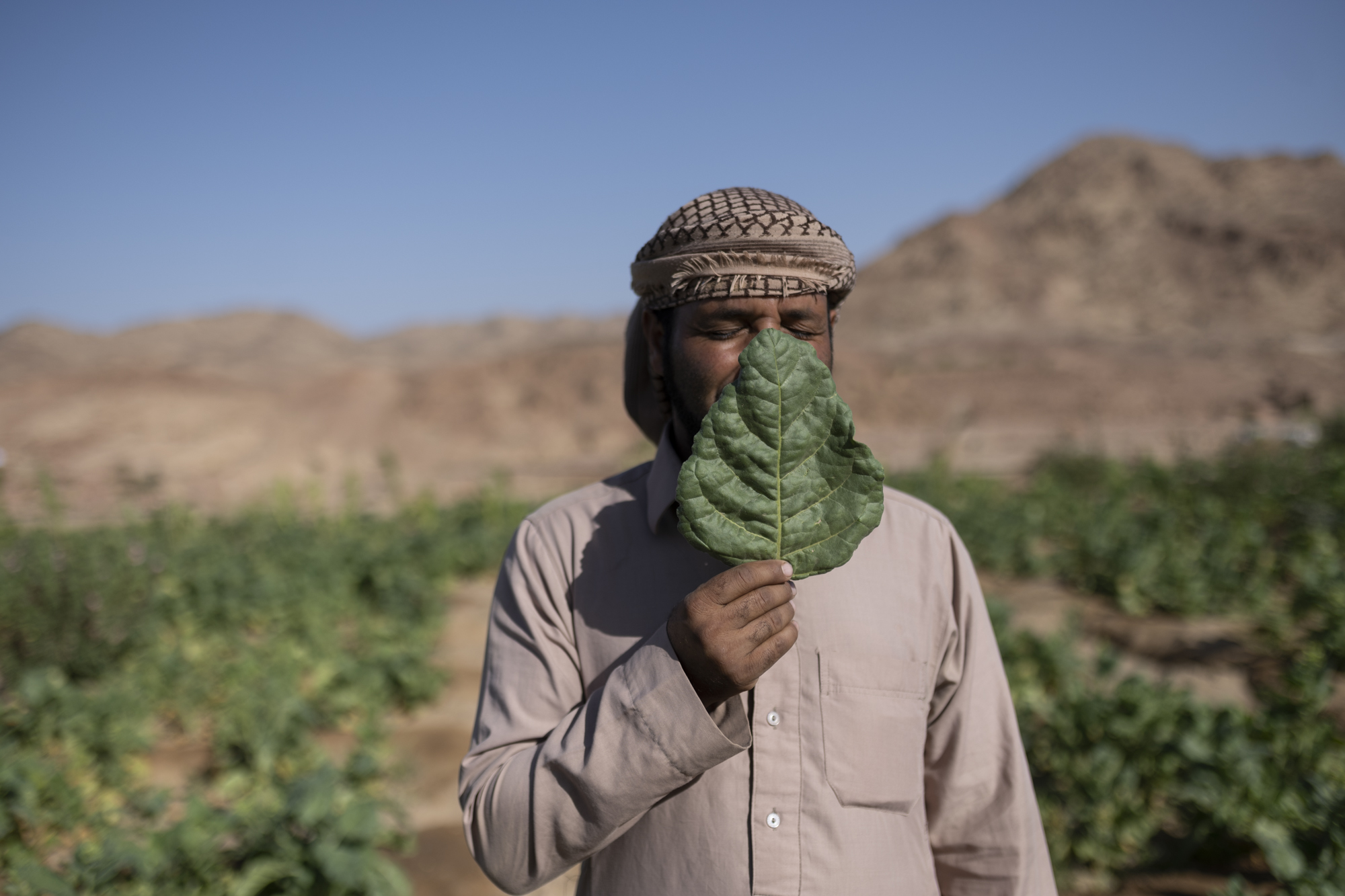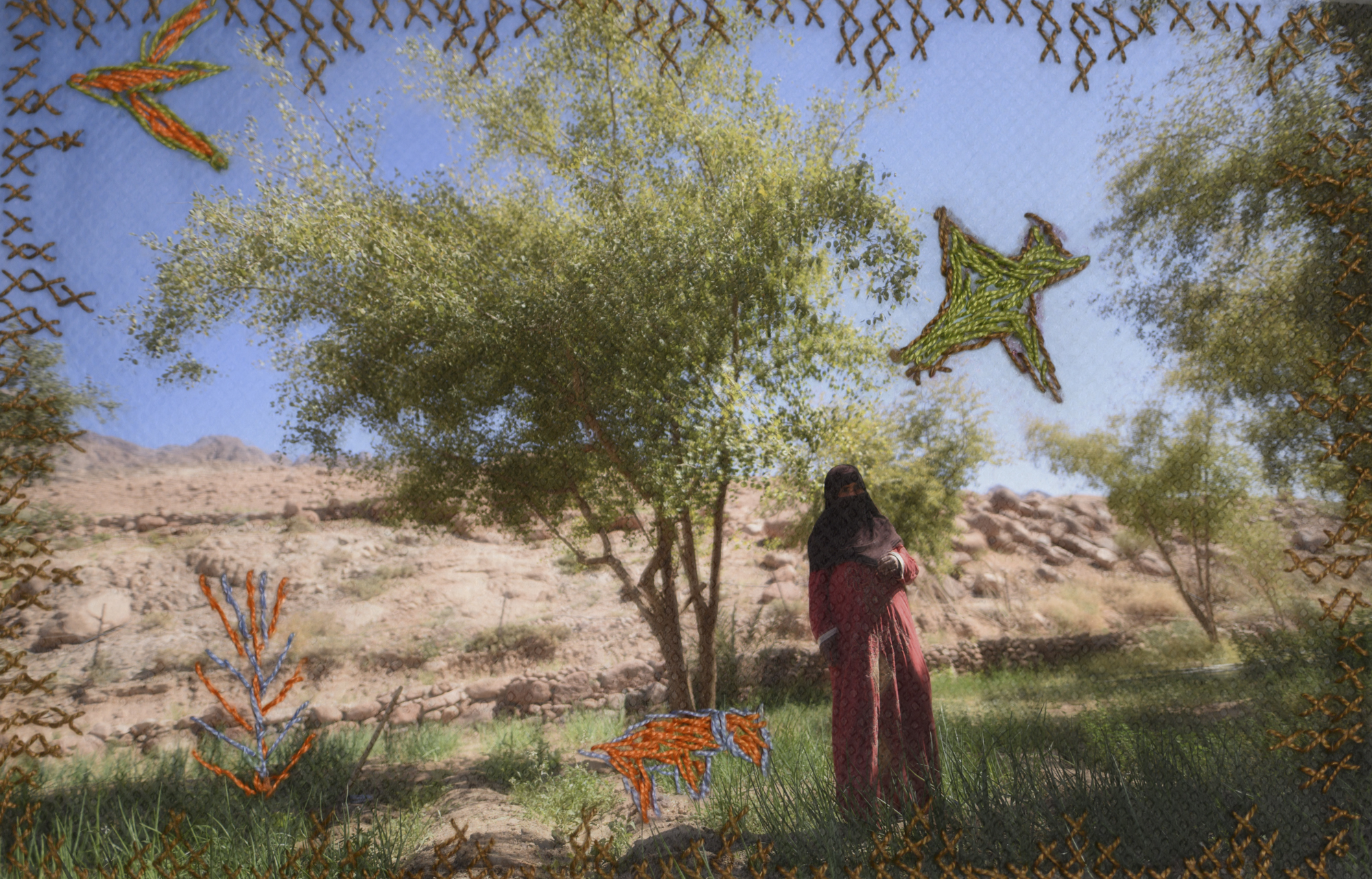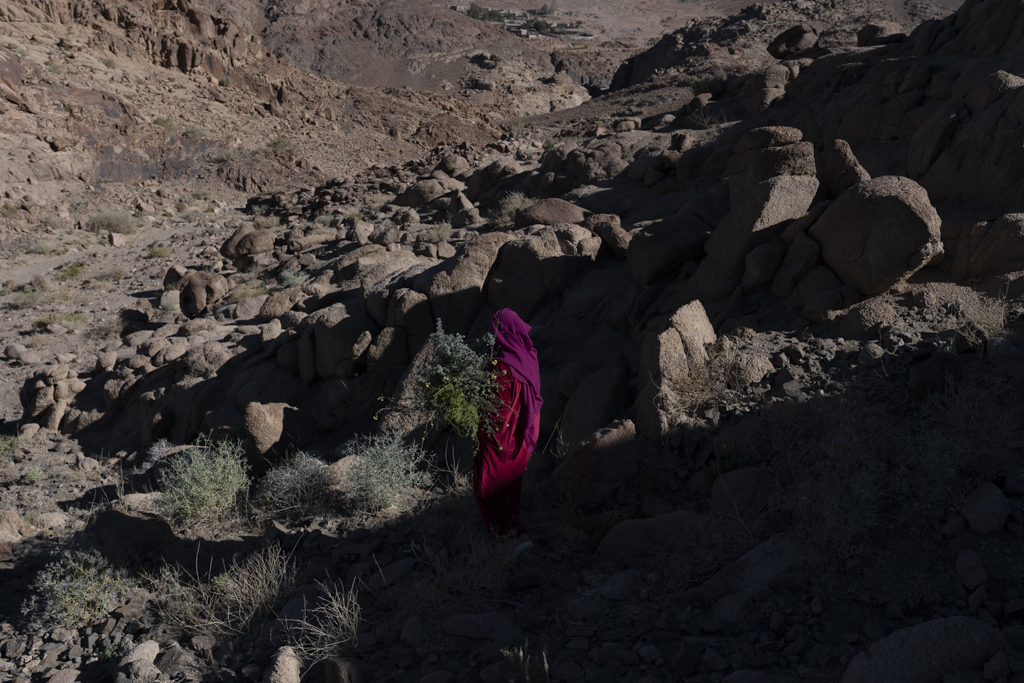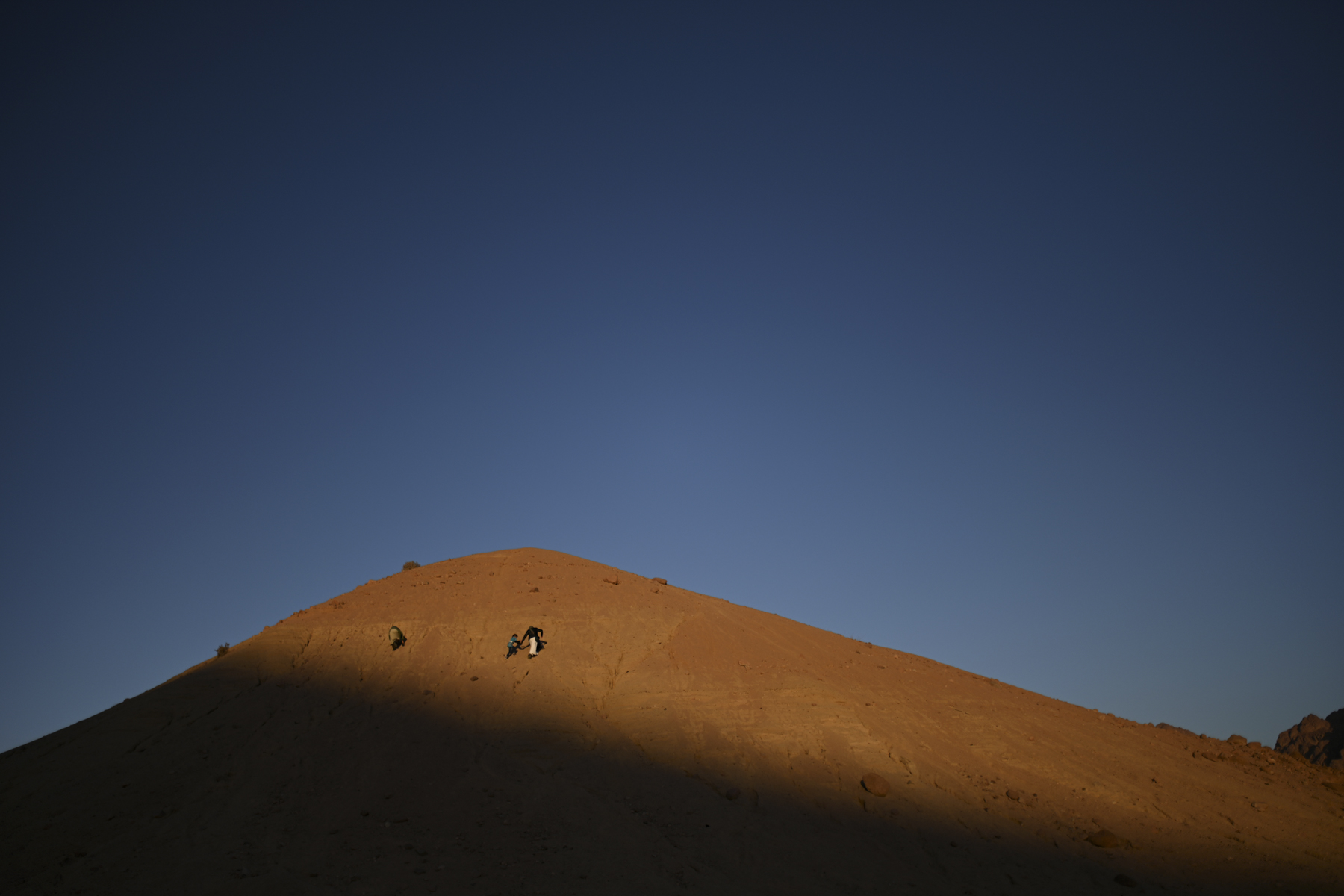2022 Winner
The Longing of the Stranger Whose Path Has Been Broken
By Rehab Eldalil
The W Award Years
HONORABLE MENTIONS
- September Bottoms
- Zohreh Sabaghnejad

Seliman holds the Khodary plant in his family garden in Gharba Valley, St. Catherine, South Sinai, Egypt. October 2020. Photo: Rehab Eldalil
REHAB ELDALIL WINS THE 2022 FOTOEVIDENCE W AWARD WITH THE LONGING OF THE STRANGER WHOSE PATH HAS BEEN BROKEN
The Longing Of The Stranger Whose Path Has Been Broken is a personal project in which I reconnect to my roots and work collaboratively with the Bedouin community to explore the notion of belonging and the interconnectedness of people and land.
The project focuses on the process of finding and seeking the meaning of belonging cited through the Bedouin community of South Sinai, Egypt. The community are participants in the creative process. I’m using their commentary of embroidery, poetry, sound and storytelling to link my photographic work with topics of representation and social injustice. The final outcome is a complementary collection of photographs, embroidery, artifacts, poetry and multimedia.

Embroidered photograph of Hajja Oum Mohamed (53) in her garden in Gharba Valley. Embroidery by her. Photo: Rehab Eldalil from the book The Longing Of The Stranger Whose Path Has Been Broken
The project attempts to understand the layers of an identity and the interconnectedness between people and land which defines the notion of belonging. I believe it’s a common human emotion to seek a definition of one’s identity, yet its complexity is often ignored, creating flattened labels and othering. With this dialogue, I’m building a bridge between the voices of the Bedouin community and the western audiences who have long seen the Bedouins and many other indigenous communities through a romanticized gaze.

Yasmine (32) picks wild herbs as she walks through the valley near her home at Sheikh Awad village. February 2021. Yasmine was six months pregnant, walking the village herd around the mountains of Gharba, when we first met nearly seven years ago. Photo: Rehab Eldalil
Bedouins of Sinai survived wars, colonialism, drought, and pandemics. But like many indigenous communities, they are commonly misrepresented in the media, portrayed as isolated from, and a threat to, modern society. And struggling to secure civil rights. Throughout it all, they remain the keepers of the land, protecting it from harm as it provides them with blessings in return. This interconnectedness, forged over the centuries, accounts for the community’s resilience in the face of challenges. And it’s this interconnectedness which survived in my blood and drew me back to find my roots and way home. This project has been my opportunity to process my estranged Bedouin ancestry.

Father and son walk over the hill to watch the last moments of sunset. The role of the father within the family dynamic in the Bedouin community does not only comprise of providing food for the family. Fathers care for their children when the mothers are off walking the village herd. As the mother walks for hours into the mountains, fathers are staying at home or working from home to care for the children. Gharba Valley, St. Catherine, South Sinai, Egypt. December 2018. Photo: Rehab Eldalil
